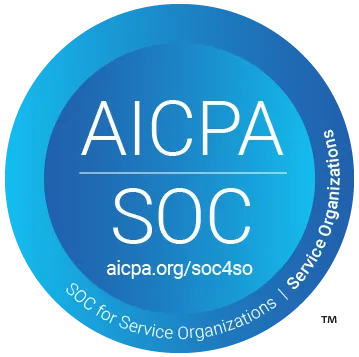Blending Automation and Human Expertise: The Future of QA Testing


Drawing on 15 years of extensive experience as a CTO, I’ve had the opportunity to guide businesses of varying sizes – ranging from smaller teams of five members to larger groups exceeding 50 employees. Along this journey, I’ve gained insights into the various phases of organizational growth and the challenges encountered in terms of testing and QA.
Testing is an indispensable yet often overlooked process. It involves arduous and costly efforts, primarily in regression testing – a monotonous task prone to human error due to oversights or neglect. While many assume testing is a custom, project-specific process, in reality, it largely revolves around fundamental, universal functionalities.
In this article, I will explore the current challenges within the QA landscape and how they evolve as businesses grow.
The Pivotal Role of QA
QA plays a vital role in software and product development, boasting a staggering $40 billion annual market value, in addition to another $20 billion investment in testing tools. And in 2021, the QA workforce amounted to almost 310,000 people globally.
The primary responsibilities of a QA tester involve meticulously following test case steps and quickly flagging deviations from expected behavior, preventing faulty releases, and avoiding costly mishaps.
In our tech-dependent world, the role of QA testing in guaranteeing software quality and reliability has never been more crucial. Proper QA accelerates time-to-market, elevates product quality, and improves user satisfaction.
Autonomous testing tools will play a vital role in QA going forward, reducing manual efforts, expediting test cycles, and enhancing overall test coverage.

Common Challenges
My experience in the domain of software development, especially as a CTO, has shown me that as businesses grow and expand, the intricacies of QA evolve and intensify. The most common issues include:
- Complexity: The expansion of teams introduces complexities to QA, requiring alignment and synergy between different departments.
- Speed and Time-to-Market: Delays in the QA process can directly impact time-to-market, ultimately affecting business objectives and resulting in a loss of revenue.
- Regression Testing: Ensuring that new changes don’t disrupt existing code is a repetitive and potentially error-prone task.
- Finding Skilled QA Engineers: Identifying and recruiting capable QA engineers remains a significant challenge as the role of software in our daily lives continues to increase. The growing demand greatly exceeds the available workforce. This shortage of QA and software testers increases the potential for serious issues.
Join the QA Revolution
Sign up for the latest AI and QA technology updates!
Work Email*
I want to subscribe to*
- Product Updates
- News and Resources
Choosing the Right QA Strategy for Growing Businesses
In startups, developers, co-founders, or board members usually focus on testing themselves. While this is still feasible in a small team, testing still diverts their focus from core product development. However, as companies gain momentum, attracting more traffic and multiplying customers, it becomes imperative to review the QA strategy. When growth exceeds 20+ engineers, a single QA professional will no longer be able to handle the increasing diversity and depth of testing requirements. New departments, each with distinct QA requirements, will further complicate the situation. The challenge lies in maintaining overall quality and avoiding delays while expanding the scope of testing.
During this growth phase, there are generally three options:
- Expanding the in-house QA team: This approach involves hiring dedicated QA professionals for your organization, an option more commonly chosen for web app development. This approach offers tailored testing for your specific product but tends to be costly and lacks versatility, often resulting in a slower time-to-market.
- Outsourcing QA: By outsourcing QA responsibilities to external service providers, you can free up valuable in-house resources. However, this can be expensive. Typically, external testing companies, managing around 70 test cases per week, can charge as much as $9,000 per month, excluding expenses related to test case creation and maintenance.
- Test automation: In this case, QA professionals write code to automate test cases. This method is more frequently used in mobile app development. While faster than manual testing, automated testing remains time-consuming and expensive. For reference, you’ll need to budget around $2,000 per month for servers and running tests in the cloud, with additional expenses for maintenance, updating test cases, and managing a team of about 20 engineers. Eventually, companies often end up disabling their tests, especially as the number of teams and departments increases.
Learn more: Top 13 Best Practices to Make Software QA Testing More Efficient
Bridging the Gap: Automation Meets Human Context in QA
Testing is repetitive, monotonous, and prone to human error. This sparks a pertinent question: Shouldn’t autonomous systems or machines handle such predictable processes?
We should consider solutions that offer both the speed of autonomous testing and the flexibility of manual testing while remaining cost-effective. I strongly believe that autonomous testing tools will play a vital role in QA going forward, reducing manual efforts, expediting test cycles, and enhancing overall test coverage.
The rise of AI will revolutionize testing efficiency by automating repetitive tasks. However, AI lacks product-specific contextual knowledge. And therein lies the strength of QA engineers: by combining AI capabilities with product-specific requirements, they ensure that the product meets its objectives. This transition aligns them more closely with a product role, moving away from the traditional quality gatekeeper position.
Conclusion
Adapting to market dynamics while balancing speed, quality, and cost-effectiveness is vital. As QA and AI progress, the optimal process bridges the gap between customer expectations and software delivery. By addressing challenges and leveraging the latest technology, QA will continue to be a driving force in ensuring software quality and customer satisfaction.
Use QA.tech’s autonomous testing QA tool to improve your software development process today!
About the author
Daniel Mauno Pettersson is the CEO and Founder of QA.tech. He acts as a Tech Advisor, CTO, and Angel Investor. With a career spanning 16 years, Daniel has traversed diverse roles, starting as a developer, and progressing to key positions such as Head of Product & Development, CEO, and CTO at esteemed companies, including Dooer, Billogram, and Memmo. Residing in the vibrant city of Stockholm, Daniel brings both his professional expertise and a personal passion for innovation to the tech industry.

Stay in touch for developer articles, AI news, release notes, and behind-the-scenes stories.

